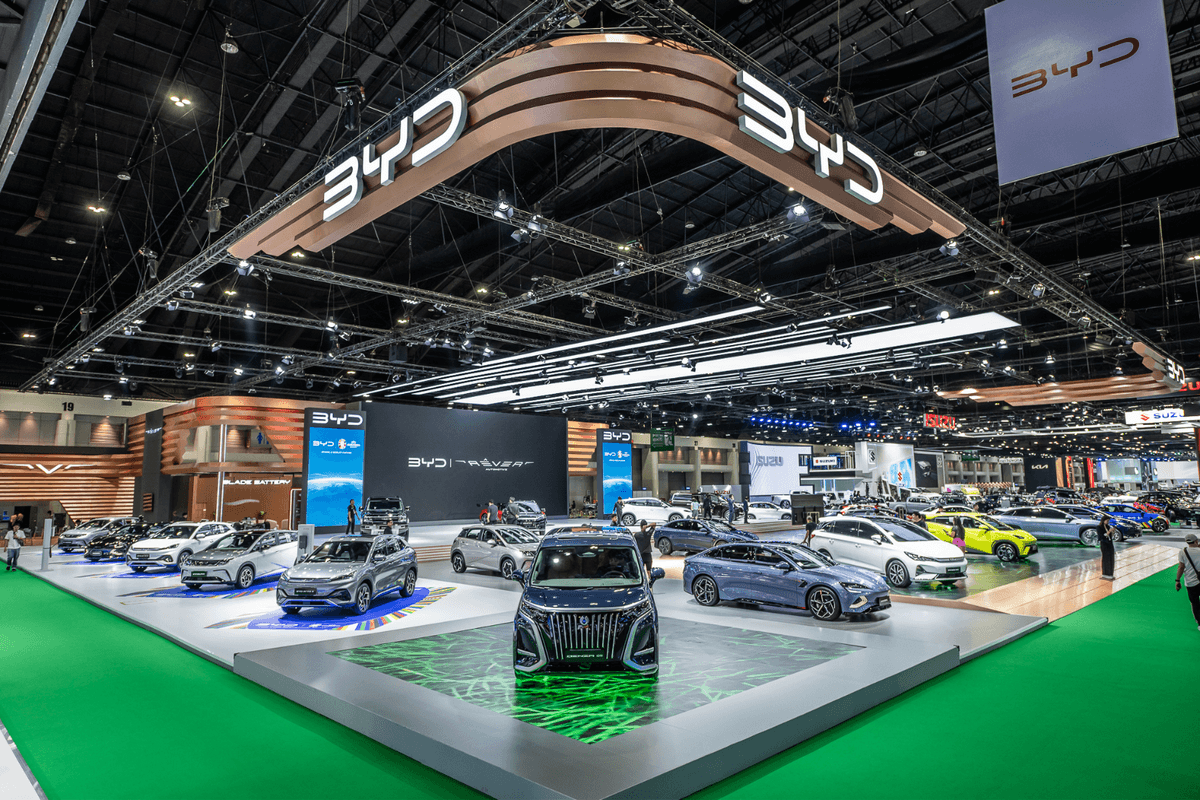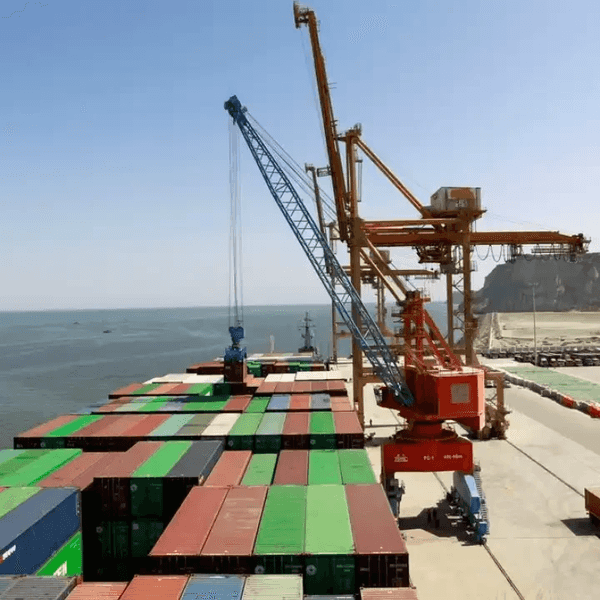200 BYD electric vehicles reach Pakistan’s port
MMC setting up assembly plant in Karachi to produce BYD vehicles
Business Desk
The Business Desk tracks economic trends, market movements, and business developments, offering analysis of both local and global financial news.

Pakistan’s consumers are all set to receive deliveries of BYD cars, as 200 electric vehicles have arrived at the country’s port, with an additional 600 expected in the coming months.
It is a major step in the country’s transition toward New Energy Vehicles (NEVs) and aims to reduce its reliance on imported fuel.
BYD, a global leader in the NEV sector, showcased its electric vehicle lineup in Pakistan through its local partner, Mega Motor Company (MMC), at the Pakistan Auto Show 2024 in October.
During the event, BYD opened bookings for its ATTO 3 and SEAL models, priced at PKR 9 million ($32,140) and PKR 17 million, respectively. The company’s entry into the Pakistani market is part of a broader strategy to expand its presence in South Asia.
MMC, backed by Hub Power Holdings Limited—a subsidiary of The Hub Power Company Limited (HUBC)—has announced plans to locally assemble and distribute BYD vehicles.
The company is establishing a manufacturing plant near Karachi with an annual production capacity of 50,000 units and an investment of approximately $150 million. This initiative is expected to accelerate EV adoption in Pakistan by making electric vehicles more accessible to consumers.
The arrival of BYD vehicles follows other recent developments in Pakistan’s EV sector. Regal Automobiles Industries Limited recently launched Pakistan’s first locally assembled electric SUV, the Seres 3, priced at over 8 million Pakistani rupees, at its Lahore plant.
Additionally, on Dec. 5, 2024, Dewan Farooque Motors Limited informed the Pakistan Stock Exchange that it had assembled more than 100 units of the Horni EV, which were handed over to Eco Green Motors Limited for customer deliveries.
Industry experts predict that the entry of new EV players like BYD will drive exponential growth in Pakistan’s EV market.
This growth is expected to spur improvements in charging infrastructure and foster competitive pricing, benefiting consumers.
The shift toward NEVs is also anticipated to significantly reduce Pakistan’s fuel import bill, which currently stands at approximately $16 billion annually.
Of this, an estimated $12 billion is spent on fuel for the transport sector.
The introduction of BYD and other electric vehicles represents a pivotal moment for Pakistan’s automotive industry, as the country seeks to embrace sustainable transportation solutions and reduce its carbon footprint. With local assembly plans and increasing consumer interest, Pakistan’s EV market is poised for rapid expansion in the coming years.
Going forward, analysts expect stable car prices, a decline in auto financing rates, and a potential increase in SBP's auto financing limit to stimulate sector demand.
Meanwhile, new product launches, such as the JAC-T9 Hunter, Hyundai Sonata N-Line, and KIA Sportage-L, will further expand consumer choices.







Comments
See what people are discussing